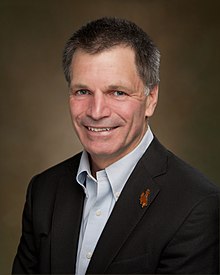
Washington, D.C., March 14 – As nationally 111,804 jobs were gained by people with disabilities, 578 people with disabilities in Wyoming were part of this gain in the workforce. Wyoming now ranks 10th in the nation for employment rates of people with disabilities with 19,063 of the 41,825 working-age (18-64) Wyomingites with disabilities being employed. The newly published 2018 Annual Disability Statistics Compendium shows Wyoming has a 45.6 disability employment rate.
Among newly sworn-in Gov. Mark Gordon’s first actions as Governor was to select Erin Johnson as his Health and Human Services Policy Advisor, signaling a firm commitment to working on “key Wyoming issues and advocating on behalf of…those with disabilities and Wyoming youth.”
Gov. Gordon’s administration is well positioned to continue supporting its citizens with disabilities. Wyoming’s Employment First Initiative has become a key policy program to enable people with disabilities to secure employment rather than just receiving government benefits. The initiative brings together job seekers with disabilities, employers who need talented workers and community service providers to facilitated connections.
The initiative also maintains a website featuring success stories of Wyomingites with disabilities and their experiences entering the working world. In the early stages of the job search, Rachel Summers, a local Wyomingite, examined her situation and participated in the Federal Ticket-To-Work program. As a result, she has become a successful entrepreneur doing alterations and sewing. Employment First’s website highlights people with a wide range of disabilities and different strategies they have used to secure competitive, integrated employment. Such stories put a human face on the effort to expand jobs for people with disabilities in Wyoming.
Wyoming also is home to an award-winning effort to support local businesses to recruit, hire and retain employees with disabilities. Disability:IN Uinta County is a business-led effort to match businesses that need quality employees with talented Wyomingites with disabilities. Through a variety of best practices, mentorship events and award receptions, Disability:IN is promoting inclusive businesses throughout the state.
“Our nation was founded on the principle that anyone who works hard should be able to get ahead in life,” said Hon. Steve Bartlett, current Chairman of RespectAbility, who co-authored the Americans with Disabilities Act when he was in Congress. “People with disabilities deserve the opportunity to earn an income and achieve independence, just like anyone else.”
A National Issue
Beyond Wyoming, how is the workforce changing for people with disabilities? What is driving these changes? The answer is simple. According to Vincenzo Piscopo of the Coca-Cola Company: “People with disabilities bring a unique skill set that it is very valuable for companies.” He went on to add, “As it relates to employment and competitiveness in the workplace, we have to stop thinking of disability as a liability and start thinking of it as an asset.”
Brand-name companies such as JP Morgan Chase, Coca-Cola, Ernst & Young, IBM, Walgreens, Starbucks, CVS and Microsoft show people with disabilities are successful employees. These companies also know that these workers improve the bottom line. “People with disabilities bring unique characteristics and talents to the workplace,” said RespectAbility President Jennifer Laszlo Mizrahi. “Hiring people with disabilities is win-win-win for employers, people with disabilities and consumers alike.”
As more companies hire employees with disabilities, conversations are shifting to focus on inclusion. “Disability inclusion is no longer about automatic doors, curb cuts, ramps, and legislation,” says Jim Sinocchi, Head of the Office of Disability Inclusion at JP Morgan Chase. “Today, the new era of disability inclusion is about “assimilation” – hiring professionals with disabilities into the robust culture of the firm.”
According to the Census Bureau, there are more than 56 million Americans living with a disability. Disabilities include visible conditions such as spinal cord injuries, visual impairments or hearing loss and invisible disabilities such as learning disabilities, mental health or Autism.
An Election Issue
Voter research, conducted by RespectAbility, shows how disability issues connect to all aspects of American life. “Fully three-quarters of likely voters either have a disability themselves or have a family member or a close friend with disabilities,” said former Representative and Dallas Mayor Steve Bartlett. “People with disabilities are politically active swing voters, and candidates should take note of the important issues they care about.”
As 2019 moves into 2020 and the political campaign season heats up, continuing job growth for people with disabilities will be a crucial indicator of the health of the American economy.

Be First to Comment